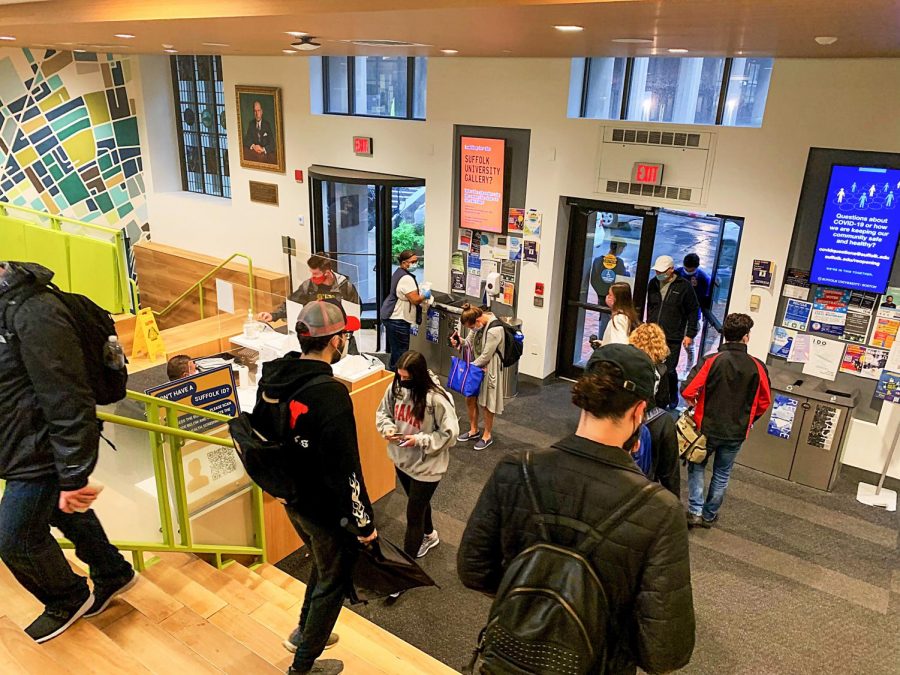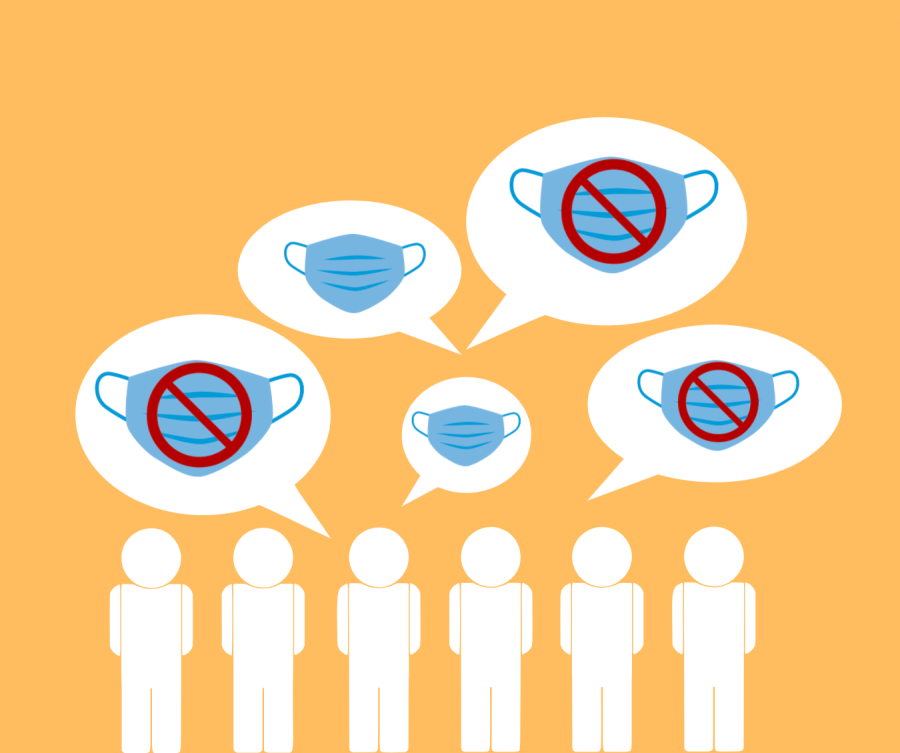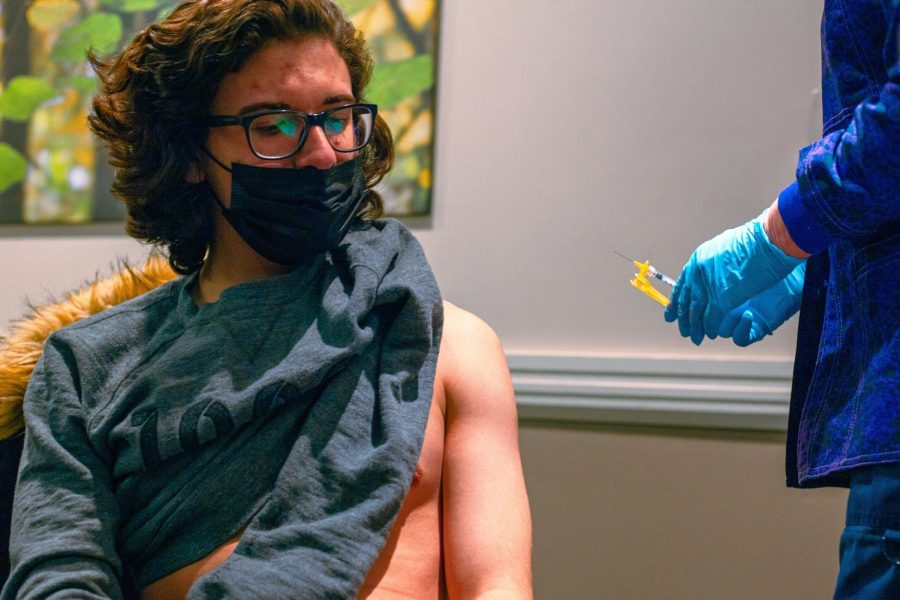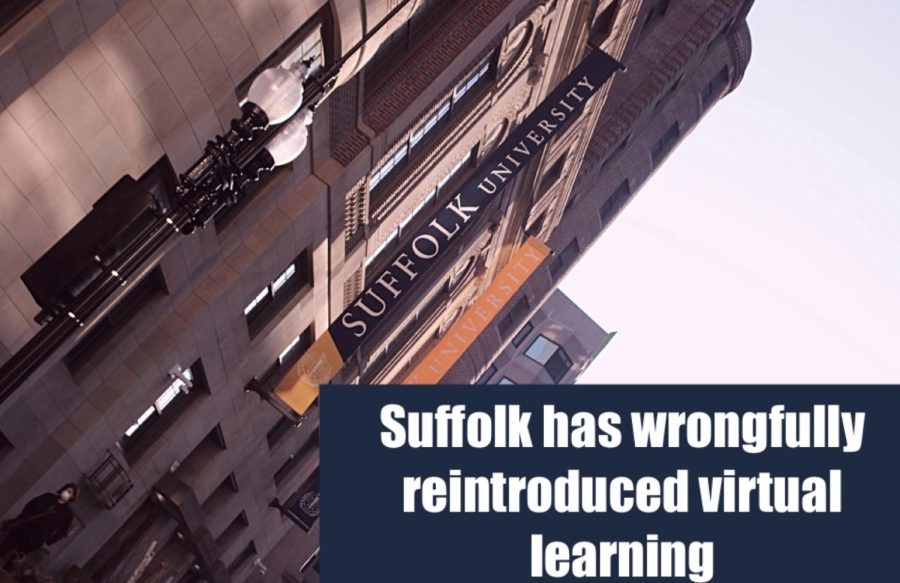The return to campus should positively affect college students’ overall wellness as virtual learning is pushed to the side.
According to the American College Health Association (ACHA), 60% of students experienced “overwhelming anxiety” in March of 2020 when COVID-19 arrived on campus. The number rose to nearly 71% in June 2020 as online learning continued, according to the Journal of Medical Internet Research (JMIR).
Attending in-person classes after a long year and a half of endless Zoom meetings has been a relief. The numbers have been projected to drop during the 2021 school year, now that students are able to attend in person classes and are no longer confined to their dorm rooms for the majority of the day.
Virtual learning resulted in many students feeling as if they were on “lockdown” and were not able to have a regular college experience.
“I like living on campus so much better than last year. This year feels like normal college life,” said Suffolk University sophomore Julia Simone.
Simone, along with many other students, have shared these feelings of isolation and loneliness during previous at-home learning. According to Making Caring Common (MCC), 36% of respondents in a survey of 950 Americans reported feeling lonely frequently, compared to only 25% of respondents before the pandemic.
Fortunately, new opportunities have significantly decreased these feelings this semester.
In comparing this school year to last, we can all agree that online learning was not a fun experience. From the lack of communication and understanding to the plethora of technical issues, Zoom classes made stress levels rise. Online learning limits connections between students, peers and professors. It can be quite isolating and could negatively impact the mental health of college students.
While trying to improve students’ experience, Suffolk’s first priority is to keep its student body safe. COVID-19 protocols are still in place at the university to limit the spread of the virus. The establishment of weekly testing, indoor mask mandates and vaccine requirements have helped give students more freedom than last year. With social distancing rules now lessened, students have the opportunity to make friends.
Students benefit from having a community they can fall back on. There are now more social gatherings, full in-person classes, on-campus activities and clubs to participate in. It is much easier and more encouraging to get involved with the campus community with the ability to go and meet people in person. Events that were canceled last year due to safety restrictions are now up and running. For example, the Fall Involvement Fair was filled with happy, eager college students on Sept. 23.
No longer having to sit behind a computer screen for eight hours straight has its benefits––physically, mentally and emotionally. Experiencing university classes and events through a computer screen is nowhere near attending them live and in person.
Sophomore Stephanie Henriquez has benefited from in-person classes. This way of learning has helped her grades and allowed to make more connections with her classmates.
“This semester, I have met more people and have been able to stay more focused,” said Henriquez.
This seems to be a very common realization across the board. Personally, I learn better when I can go to class and work through the material hands-on. I spoke to my peers throughout the 2020 school year and many of them told me online learning was not helping their grades.
COVID-19 is still very prevalent within and around college campuses, especially within Boston. It is smart to follow the proper restrictions to ensure the safety of everyone on campus. Let’s continue to be safe so that we can continue to reap the benefits of in-person learning this year and give hope for COVID-19 free semesters to come in the future.





















